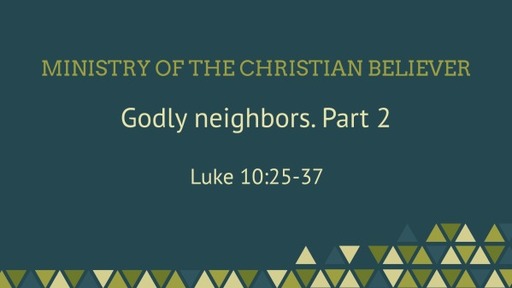Ministry of the Christian believer. Who is my neighbor.

Intro
12 If you do good, know to whom you do it,
and you will be thanked for your good deeds.
2 Do good to the devout, and you will be repaid—
if not by them, certainly by the Most High.
3 No good comes to one who persists in evil
or to one who does not give alms.
4 Give to the devout, but do not help the sinner.
Obviously, he could not love everyone. That would be impossible. But if he could find a way to limit the size of his neighborhood, then maybe, just maybe, he really could love his neighbor, and then he would be able to justify himself before God.
This is what always happens when we try to be saved by our own works. Rather than upholding the law in all its perfection, we undermine the law by reducing it to something we think we might be able to keep.
The people who heard this story would assume that these religious leaders had been in Jerusalem to serve at the temple, where they had recited the law and offered sacrifices on God’s altar.
But however fervently they worshiped at God’s house, when these men went out on the road they failed to keep the law of God’s love or to offer themselves as living sacrifices for a neighbor in need.
The main point is that a neighbor is something we are, not something we have, and that for believers in Christ, neighborly love is a whole way of life.
